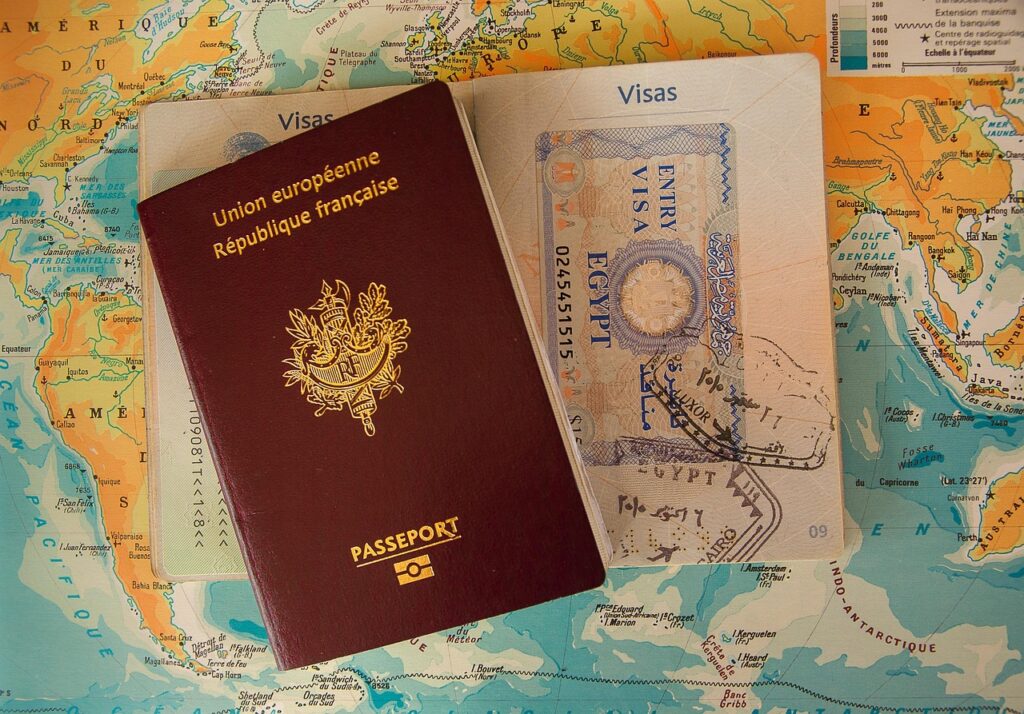Thousands of international students choose Canada as their study abroad destination because of its excellent educational system, rich cultural offerings, and plenty of international opportunities. Acquiring a Canadian student visa, however, is only the beginning of your journey. It is essential that you understand your responsibilities as a student visa holder in Canada in order to remain in accordance with immigration regulations and to make the most of your educational experience.
This page covers all the necessary information for a student visa holder in Canada, including how to maintain your immigration status, what to anticipate academically, the constraints on your study permit, and the laws for part-time work.

Just How Critical It Is That You Understand Your Role
Canada welcomes international students, but they have certain rules they must follow. If you fail to meet the criteria for your visa, you might face serious consequences, such as:
- Overdue student visa
- The inability to apply for a future visa or permanent residency
- Leaving Canada without permission
To avoid such repercussions, you must show that you understand your responsibilities as a Canadian student visa holder before you arrive and throughout your stay.
Main Responsibilities of a Student Visa Holder in Canada
1. Keep Enrolled at a School That Has Been Designated (DLI)
Attendance at a DLI is a prerequisite for the study permit to be valid. These schools are those that have received approval from the relevant provincial or territorial authorities to welcome international students.
Important Notice:
- You must maintain your enrollment status during each academic term.
- If you transfer schools, your new school must also be a DLI.
- It is imperative that you update your DLI information on your IRCC profile.
2. Make Academic Progress
Canada expects you to make “reasonable progress” in your chosen field of study. This includes paying close attention in class, completing assignments, and taking exams.
Try not to:
- Miss too many lessons
- Consistently falling behind in class
- Continuing absences unaccompanied by a valid medical excuse
If you fail to put forth the necessary effort or maintain a bad academic record, the IRCC may decide to remove your study license.
3. Follow All Regulations Outlined in Your Student Visa
If you are awarded a study permit, there are specific standards that you must meet, such as:
- Permitted job categories
- Duration of stay
- Duty to depart from Canada at the expiration (unless extended) of one’s authorization
Acknowledging and adhering to all of these regulations will show that you understand your responsibilities as a Canadian student visa holder.
4. Stay On Track With the Law
Under some circumstances, international students in Canada may have a part-time job while they attend school.
Work Limits:
- A maximum of 20 hours per week during regular school hours are allowed.
- Full-time during scheduled holidays (such as summer and winter breaks).
- In order to qualify, you must be a full-time student at a DLI.
If these work limitations are violated, future eligibility for immigration programs might be rejected.
5. Maintain Records and Submit Tax Returns
Keeping a job while going to school at the same time requires you to:
- Apply for a Social Security Number (SSN).
- Regardless of your income level, you are still required to pay your taxes annually.
- Keep all academic, immigration, and tax transcripts in a safe place.
You will need these documents to apply for a work visa after finishing graduate school or for permanent residency.
6. Remind the IRCC of Any Changes
In the event that your situation undergoes substantial changes, such as:
- Changing universities
- Adjusting software
- Moving to a different place
- Renewing a passport
Notify the IRCC using your MyCIC online account. Failing to keep your study permit details up-to-date puts you in violation of its requirements.
7. Stay in Compliance Even After Graduation
After your program ends, you can’t keep using the same study visa to enrol in another school. A requirement is that you must:
- Send in your PGWP application if you meet the requirements.
- Switch your status to something different entirely (like an employee or a guest, for instance).
- Get out of Canada before your authorization runs out.
If you plan to remain in Canada illegally after graduating, it can affect your future immigration prospects.
8. Keep Canadian Law and Culture in Respect
Temporary residents are required to:
- Observe all applicable federal, state, and local laws.
- Avoid being caught doing anything unlawful, no matter how little, like stealing or being drunk in public.
- Recognize and honor diverse cultural practices.
If you face deportation or other legal complications, you may also be unable to apply for permanent residence in the future.
9. Appreciate Your Health Care Requirements
The availability of public health services for international students varies among the provinces of Canada. If your province does not provide public insurance, it is your responsibility to:
- Buy health insurance via an outside organization
- Pay for any out-of-pocket medical expenses
Financial hardship might result from a lack of health insurance in the case of a serious illness or accident.
10. Be Prepared for Changes in Status or Extensions of Permits
If your goal is to:
- Get more education
- Enroll in a different class
- Update your green card information
You are required to apply prior to the expiration of your study authorization. If your application is filed after the deadline, you run the risk of losing your status and being compelled to leave the country.
Typical Mistakes to Avoid
Mistakes may happen even to the most well-meaning pupils. The following are examples of common errors:
- Working over the allowed amount of hours
- Failure to extend the research permission by the due date
- Not showing up to class or failing a course
- The address and DLI details have not been updated
- Having no idea when licenses expire
To stay in good standing, review your duties regularly. If you have any questions, contact your university’s international student office.
Ways to Keep Current
Make sure you understand your responsibilities as a Canadian student visa holder by taking these steps:
- Make sure you read your study permission carefully.
- Pay attention to each listed illness.
- Utilize Government-Sponsored Means
- Keep checking the IRCC website for updates.
- Reach out to your school’s international office.
- Inquiries about visas and other legal matters may be handled by them.
- Sign up for immigration and orientation sessions.
- International students may take advantage of legal and cultural adaptation courses offered by most schools.
Be Well-Organized
Keep all immigration papers in two formats: physical copy and digital copy.
Getting Your Work Done Has Its Benefits
Following the rules and being in compliance has various advantages:
- Post-Graduation Work Permit (PGWP) Requirements
- How to get a permanent residency visa easily
- Options to get legal job experience in Canada
- Defeat in the face of potential immigration or legal hurdles
- Solace in knowing that you’re making good progress
In Conclusion
Knowing your responsibilities as a Canadian student visa holder is essential to your academic performance, safety, and smooth transition to life in Canada. From maintaining up-to-date paperwork to following work-hour constraints and maintaining enrollment at a Designated Learning Institution, every aspect of your legal standing demands knowledge and attention.
If international students want to take advantage of Canada’s great opportunities, they must respect and follow the country’s immigration rules. By being informed and following all regulations, you may achieve your academic goals and set yourself up for a successful career in Canada.
